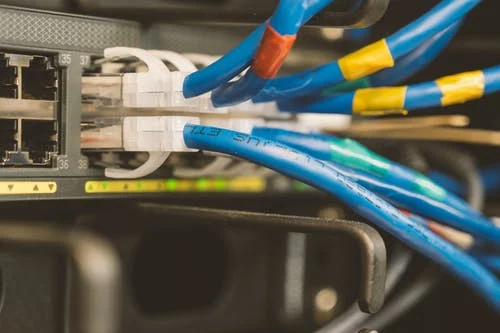Switch Enclosure Boxes: What Are These?
When working with different electrical systems, you need to have a main switch for all its power sources.
A switch enclosure box is used to control the power running into these electrical systems.
It works by allowing current to flow into different electrical systems to operate.
A switch enclosure box comes in different types. Depending on its use, each type offers levels of protection against external factors.
What is a Switch Enclosure Box?
A switch enclosure box acts as the housing for turning a power supply on or off.
At first, they seem to be normal electrical boxes, not until you know how it works.
These boxes play an important role in almost all areas of industrialization.
It houses the core of IT systems, telecommunications, and other utilities. It serves as the pandora box of holding access to vital industrial equipment.
It acts as a case for knobs or switches to protect an operator from electrical shock.
A switch enclosure box also protects the electrical materials from the external environment. It keeps the electrical components away from getting damaged.
Exposure to heat or moisture affects the function of the electrical supply.
To prevent this, adding a protective means of keeping it dry is important.
What is it used for?
The multiple electrical lines of an industrial building need proper power organization.
For example, an apartment needs a different switch for each unit. To do so, a switch enclosure box is needed to separate the lines for each room.
Its importance in the field of mechanical automation is also needed.
A switch enclosure box serves as the housing to toggle mechanical parts powered by robotic automation.
It protects circuit breakers, control panels, contactors, and switches from radio frequency and electromagnetic interference.
Switch enclosure boxes also act as a protective shield for telephone cabinets, distribution panels, and distribution boards.
It can be seen throughout chemical plants, electrical and communications centers, mining and gas facilities, or even at hospitals.
Anything that uses a large-scale electrical power supply needs a switch enclosure box.
What is its Purpose?
A switch enclosure box encapsulates electrical controllers to protect them from getting damaged.
Exposure to humidity, high temperatures, corrosion, shock and vibrations, and dust affects electrical components.
This puts an operator at risk of getting electrocuted from damaged electrical power control.
The National Electrical Manufacturers Association (NEMA) set the standards to prevent this from happening.
Depending on the needed degree of protection, a switch enclosure box must adhere to the standards set by the NEMA.
These standards define the level of shielding against atmospheric conditions.
Types of Switch Enclosure Box
The NEMA specified the standard types of switch enclosure boxes depending on their use.
Each type must adhere to close solid-state control devices with the highest protection. It has to be dust-proof and completely sealed.
With the advancement of technology, the demand for using a switch enclosure box increases.
Its use in the industrial field makes it a common item to toggle switches for electrical equipment.
These switch enclosure boxes come in different types according to NEMA standards.
NEMA 1 Electrical Enclosure Box
If you are looking for an indoor enclosure box, the NEMA 1 is best for you. This cost-effective enclosure is perfect for shielding electrical items.
It prevents public access to dangerous electrical circuits.
NEMA 1 offers the most basic standard of protection. It’s the least-rated enclosure box among the list of the NEMA standards.
NEMA 2 Electrical Enclosure Box
Same with NEMA 1, NEMA 2 offers basic protection against light dust and dirt.
The only thing that differentiates NEMA 2 from NEMA 1 is its minimal protection against moisture.
Its added layer of barrier protects its interior against light drops of water.
NEMA 3 Electrical Enclosure Box
The NEMA 3 enclosure box has an added feature from its predecessors.
While NEMA 1 & 2 are both used for indoor circuits, the NEMA 3 can be used both indoors and outdoors.
With its dual purpose, the NEMA 3 Enclosure Box is mostly used as an outdoor case.
Its ability to protect the circuit from rain, dirt, external ice formation and sleet makes it a good choice for fair weather conditions.
NEMA 4 Electrical Enclosure Box
NEMA 4 enclosure boxes are designed to withstand harsh weather conditions.
Its watertight design makes it the best option for outdoor circuit housing.
Its ability to withstand splashes and hose-directed water exposure makes it a good choice for telecommunications equipment.
NEMA 4X Electrical Enclosure Box
Same with the NEMA 4, the NEMA 4X offers the watertight protection of its enclosure.
However, its ability to stand longer against corrosion is an added feature.
This helps sensitive electrical components to easily get damaged.
NEMA 6 Electrical Enclosure Box
The NEMA 6 is used for both outdoor and indoor enclosures.
Its added feature for temporary submersion into the water makes it the perfect choice for maritime services and electrical vehicles.
The ability of the NEMA 6 to withstand wet environments makes it less worrisome for engineers.
NEMA 6P Electrical Enclosure Box
The NEMA 6P offers the same protection as the NEMA 6.
The only thing that differentiates it is its prolonged time of water submersion.
NEMA 7 Electrical Enclosure Box
The NEMA 7 classification is specially built for indoor hazardous components.
The NEMA 7 is specially designed to withstand explosions.
Because of its tough covering, it’s the choice for chemical plants and other facilities prone to explosion.
Conclusion
The right type of switch enclosure box helps prevent disasters and equipment damage.
Electrical engineers constantly seek ways to improve an enclosure box’s design to adhere to the NEMA standards.










